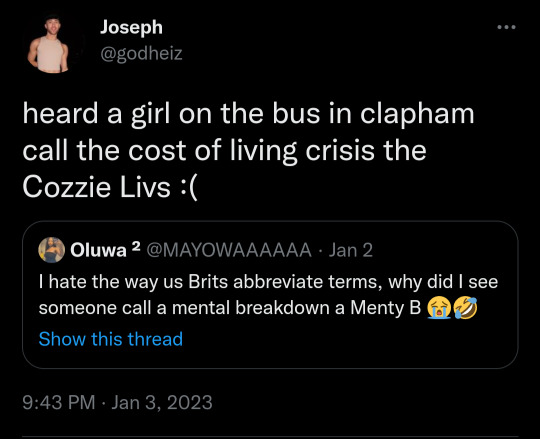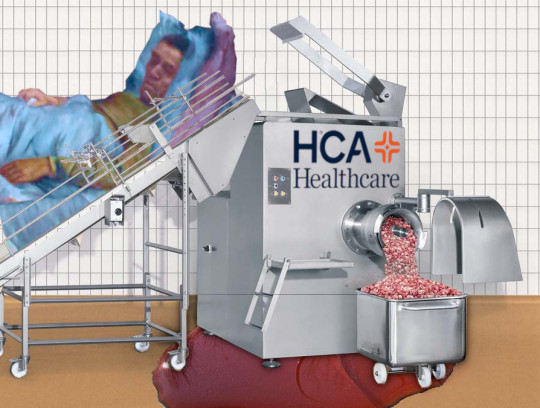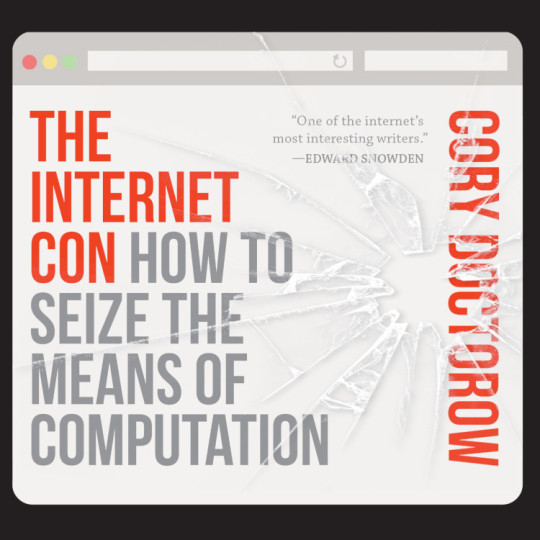#palli
Text

This is an unserious country lol
14K notes
·
View notes
Conversation
Palli: everything okay between you and Acatl-tzin?
Teomitl: yeah, why do you ask?
Palli: you were arguing for six hours straight.
Teomitl: well, what do you do with your best friend?
0 notes
Text

Anthony Fineran (B 1981), Arbor Ilian Palli, 2023
0 notes
Text

catching up on reading after saving the world
in english:


1K notes
·
View notes
Photo

Paladin miniature,because pallies are awesome #miniaturepainting #miniature #angel #warrior #minipainting #miniaturepainting #artisanguild #painting #paladin #palli #knight #artisanguild #3dprintedminiature #3dprinting #paintingminis #dnd #dndminiatures #hammer #warhammer #paladinsarelife #tabletopminiatures #vallejo #paladinsareawesome @artisan_guild_p https://www.instagram.com/p/CjN0KgEuVDi/?igshid=NGJjMDIxMWI=
#miniaturepainting#miniature#angel#warrior#minipainting#artisanguild#painting#paladin#palli#knight#3dprintedminiature#3dprinting#paintingminis#dnd#dndminiatures#hammer#warhammer#paladinsarelife#tabletopminiatures#vallejo#paladinsareawesome
0 notes
Text
Nice Night For A Black Wedding

I commissioned @palavenmoons for a preME1 Juxtaposed Jane and Garrus for the rewrites. I absolutely love what Palavenmoons did with this! It fits perfectly with the gothic style wedding I have planned for the Jux rewrites so I'm happy to share this.
It's definitely a nice boost to get to the rewrites!
#mass effect#garrus vakarian#shakarian#parable#female shepard#femshep x garrus#juxtaposed#female shepard x garrus#custom femshep#femshep#mass effect au#pre ME1#that dark aqua is my fav color!#thanks Pally!
411 notes
·
View notes
Text
FIG'S FIRST PRAYER TO CASSANDRA DRAWING STRENGTH FROM THE DOUBT SHE EXPERIENCED WHEN HER HORNS GREW IN & HOW IT ULTIMATELY STRENGTHENED HER BOND WITH GILEAR IM GOING TO C R Y
#PALLY FIG IS EVERYTHING TO ME!!!!!!!!!!!!!!!!!!!!!#dimension 20#fantasy high#fantasy high spoilers#fhjy spoilers
744 notes
·
View notes
Text


nyi@njd | 28.11.23
446 notes
·
View notes
Text

at least they still have that sick pink belt i guess
an assortment of doodles of strange someone frisk - they're @the-meme-monarch's! go! check them out if u don't know them!! - simply because they were on the mind to the point where i had to visualize my thoughts or risk falling into the shadow realm
bit of a less serious doodle under the cut as a surprise lmao i did it once as warmup

#strange someone frisk#ended up kinda trying something different because nothing other than emulating pally's style seemed to work for them#they're too much their creation in my mind to transcribe it fully into my own ig (and not for lack of trying)#the comic one is cuz i think itd be poignant if ss frisk appeared in the dr universe by the bunker#deltarune#utdr#frisk undertale#frisk#deltarune au#undertale#dr#ut#jevil#hes below the cut but hes there#not counting the photo thing for this lol#my artbook#i know ssfrisk alr has a playlist and it slaps but penelope scott's montreal will remain their song also in my heart#obv some more effort put into this than my previous doodle#we're climbing out of this artblock by force yall. im yanking myself out
420 notes
·
View notes
Text
yall will never know the whiplash of following a decent tmnt blog and suddenly seeing them post like "man i cant believe how many ppl believe in evolution don't they know the bible says x?"
like buddy. pal. friendo. you do know where the word "mutant" comes from right...?
#also on a more philosophical note while im not religious i always figured the whole#on the second day he made man thing was like#a metaphor#i mean its not like god theyselves wrote the bibble#i think there's some room for interpretation there pally
833 notes
·
View notes
Conversation
Acatl: i would describe Teomitl as...
Palli: brash?
Nezahual: abrasive?
Mihmatini: aggressive?
Acatl: ...diplomatically challenged.
0 notes
Text




if you need me i'll be in a corner quietly losing my shit
#ramble#neck deep#WHAT IF I JUST STOOD HERE AND VIBRATED#WHAT THEN#this is So british punk i'm salivating#if they don't play this at ally pally i will die#they really said fuck the royals and fuck the government and fuck you if you aren't doing anything about it
188 notes
·
View notes
Text
I genuinely, deeply don’t understand why abortion advocates (and some medical exception pro-lifers) are against induced early delivery and palliative care. With all the risks and invasive nature of a surgical abortion, what is the point? What is the point other than being scaremongered into a procedure that denies a child their right to medical care/pain relief?
#yes this is about the cox case#yes i agree that a full term birth is not safe for her#but WHY only an abortion???#why not induce premature birth and give that baby palliative care?#ranting
266 notes
·
View notes
Text
America's largest hospital chain has an algorithmic death panel

It’s not that conservatives aren’t sometimes right — it’s that even when they’re right, they’re highly selective about it. Take the hoary chestnut that “incentives matter,” trotted out to deny humane benefits to poor people on the grounds that “free money” makes people “workshy.”
There’s a whole body of conservative economic orthodoxy, Public Choice Theory, that concerns itself with the motives of callow, easily corrupted regulators, legislators and civil servants, and how they might be tempted to distort markets.
But the same people who obsess over our fallible public institutions are convinced that private institutions will never yield to temptation, because the fear of competition keeps temptation at bay. It’s this belief that leads the right to embrace monopolies as “efficient”: “A company’s dominance is evidence of its quality. Customers flock to it, and competitors fail to lure them away, therefore monopolies are the public’s best friend.”
But this only makes sense if you don’t understand how monopolies can prevent competitors. Think of Uber, lighting $31b of its investors’ cash on fire, losing 41 cents on every dollar it brought in, in a bid to drive out competitors and make public transit seem like a bad investment.
Or think of Big Tech, locking up whole swathes of your life inside their silos, so that changing mobile OSes means abandoning your iMessage contacts; or changing social media platforms means abandoning your friends, or blocking Google surveillance means losing your email address, or breaking up with Amazon means losing all your ebooks and audiobooks:
https://www.eff.org/deeplinks/2021/08/facebooks-secret-war-switching-costs
Businesspeople understand the risks of competition, which is why they seek to extinguish it. The harder it is for your customers to leave — because of a lack of competitors or because of lock-in — the worse you can treat them without risking their departure. This is the core of enshittification: a company that is neither disciplined by competition nor regulation can abuse its customers and suppliers over long timescales without losing either:
https://pluralistic.net/2023/01/21/potemkin-ai/#hey-guys
It’s not that public institutions can’t betray they public interest. It’s just that public institutions can be made democratically accountable, rather than financially accountable. When a company betrays you, you can only punish it by “voting with your wallet.” In that system, the people with the fattest wallets get the most votes.
When public institutions fail you, you can vote with your ballot. Admittedly, that doesn’t always work, but one of the major predictors of whether it will work is how big and concentrated the private sector is. Regulatory capture isn’t automatic: it’s what you get when companies are bigger than governments.
If you want small governments, in other words, you need small companies. Even if you think the only role for the state is in enforcing contracts, the state needs to be more powerful than the companies issuing those contracts. The bigger the companies are, the bigger the government has to be:
https://doctorow.medium.com/regulatory-capture-59b2013e2526
Companies can suborn the government to help them abuse the public, but whether public institutions can resist them is more a matter of how powerful those companies are than how fallible a public servant is. Our plutocratic, monopolized, unequal society is the worst of both worlds. Because companies are so big, they abuse us with impunity — and they are able to suborn the state to help them do it:
https://www.cambridge.org/core/journals/perspectives-on-politics/article/testing-theories-of-american-politics-elites-interest-groups-and-average-citizens/62327F513959D0A304D4893B382B992B
This is the dimension that’s so often missing from the discussion of why Americans pay more for healthcare to get worse outcomes from health-care workers who labor under worse conditions than their cousins abroad. Yes, the government can abet this, as when it lets privatizers into the Medicare system to loot it and maim its patients:
https://prospect.org/health/2023-08-01-patient-zero-tom-scully/
But the answer to this isn’t more privatization. Remember Sarah Palin’s scare-stories about how government health care would have “death panels” where unaccountable officials decided whether your life was worth saving?
https://pubmed.ncbi.nlm.nih.gov/26195604/
The reason “death panels” resounded so thoroughly — and stuck around through the years — is that we all understand, at some deep level, that health care will always be rationed. When you show up at the Emergency Room, they have to triage you. Even if you’re in unbearable agony, you might have to wait, and wait, and wait, because other people (even people who arrive after you do) have it worse.
In America, health care is mostly rationed based on your ability to pay. Emergency room triage is one of the only truly meritocratic institutions in the American health system, where your treatment is based on urgency, not cash. Of course, you can buy your way out of that too, with concierge doctors. And the ER system itself has been infested with Private Equity parasites:
https://pluralistic.net/2022/11/17/the-doctor-will-fleece-you-now/#pe-in-full-effect
Wealth-based health-care rationing is bad enough, but when it’s combined with the public purse, a bad system becomes a nightmare. Take hospice care: private equity funds have rolled up huge numbers of hospices across the USA and turned them into rigged — and lethal — games:
https://pluralistic.net/2023/04/26/death-panels/#what-the-heck-is-going-on-with-CMS
Medicare will pay a hospice $203-$1,462 to care for a dying person, amounting to $22.4b/year in public funds transfered to the private sector. Incentives matter: the less a hospice does for their patients, the more profits they reap. And the private hospice system is administered with the lightest of touches: at the $203/day level, a private hospice has no mandatory duties to their patients.
You can set up a California hospice for the price of a $3,000 filing fee (which is mostly optional, since it’s never checked). You will have a facility inspection, but don’t worry, there’s no followup to make sure you remediate any failing elements. And no one at the Centers for Medicare & Medicaid Services tracks complaints.
So PE-owned hospices pressure largely healthy people to go into “hospice care” — from home. Then they do nothing for them, including continuing whatever medical care they were depending on. After the patient generates $32,000 in billings for the PE company, they hit the cap and are “live discharged” and must go through a bureaucratic nightmare to re-establish their Medicare eligibility, because once you go into hospice, Medicare assumes you are dying and halts your care.
PE-owned hospices bribe doctors to refer patients to them. Sometimes, these sham hospices deliberately induce overdoses in their patients in a bid to make it look like they’re actually in the business of caring for the dying. Incentives matter:
https://www.newyorker.com/magazine/2022/12/05/how-hospice-became-a-for-profit-hustle
Now, hospice care — and its relative, palliative care — is a crucial part of any humane medical system. In his essential book, Being Mortal, Atul Gawande describes how end-of-life care that centers a dying person’s priorities can make death a dignified and even satisfying process for the patient and their loved ones:
https://atulgawande.com/book/being-mortal/
But that dignity comes from a patient-centered approach, not a profit-centered one. Doctors are required to put their patients’ interests first, and while they sometimes fail at this (everyone is fallible), the professionalization of medicine, through which doctors were held to ethical standards ahead of monetary considerations, proved remarkable durable.
Partly that was because doctors generally worked for themselves — or for other doctors. In most states, it is illegal for medical practices to be owned by non-MDs, and historically, only a small fraction of doctors worked for hospitals, subject to administration by businesspeople rather than medical professionals.
But that was radically altered by the entry of private equity into the medical system, with the attending waves of consolidation that saw local hospitals merged into massive national chains, and private practices scooped up and turned into profit-maximizers, not health-maximizers:
https://prospect.org/health/2023-08-02-qa-corporate-medicine-destroys-doctors/
Today, doctors are being proletarianized, joining the ranks of nurses, physicians’ assistants and other health workers. In 2012, 60% of practices were doctor-owned and only 5.6% of docs worked for hospitals. Today, that’s up by 1,000%, with 52.1% of docs working for hospitals, mostly giant corporate chains:
https://prospect.org/health/2023-08-04-when-mds-go-union/
The paperclip-maximizing, grandparent-devouring transhuman colony organism that calls itself a Private Equity fund is endlessly inventive in finding ways to increase its profits by harming the rest of us. It’s not just hospices — it’s also palliative care.
Writing for NBC News, Gretchen Morgenson describes how HCA Healthcare — the nation’s largest hospital chain — outsourced its death panels to IBM Watson, whose algorithmic determinations override MDs’ judgment to send patients to palliative care, withdrawing their care and leaving them to die:
https://www.nbcnews.com/health/health-care/doctors-say-hca-hospitals-push-patients-hospice-care-rcna81599
Incentives matter. When HCA hospitals send patients to die somewhere else to die, it jukes their stats, reducing the average length of stay for patients, a key metric used by HCA that has the twin benefits of making the hospital seem like a place where people get well quickly, while freeing up beds for more profitable patients.
Goodhart’s Law holds that “When a measure becomes a target, it ceases to be a good measure.” Give an MBA within HCA a metric (“get patients out of bed quicker”) and they will find a way to hit that metric (“send patients off to die somewhere else, even if their doctors think they could recover”):
https://en.wikipedia.org/wiki/Goodhart%27s_law
Incentives matter! Any corporate measure immediately becomes a target. Tell Warners to decrease costs, and they will turn around and declare the writers’ strike to be a $100m “cost savings,” despite the fact that this “savings” comes from ceasing production on the shows that will bring in all of next year’s revenue:
https://deadline.com/2023/08/warner-bros-discovery-david-zaslav-gunnar-wiedenfels-strikes-1235453950/
Incentivize a company to eat its seed-corn and it will chow down.
Only one of HCA’s doctors was willing to go on record about its death panels: Ghasan Tabel of Riverside Community Hospital (motto: “Above all else, we are committed to the care and improvement of human life”). Tabel sued Riverside after the hospital retaliated against him when he refused to follow the algorithm’s orders to send his patients for palliative care.
Tabel is the only doc on record willing to discuss this, but 26 other doctors talked to Morgenson on background about the practice, asking for anonymity out of fear of retaliation from the nation’s largest hospital chain, a “Wall Street darling” with $5.6b in earnings in 2022.
HCA already has a reputation as a slaughterhouse that puts profits before patients, with “severe understaffing”:
https://www.nbcnews.com/health/health-news/workers-us-hospital-giant-hca-say-puts-profits-patient-care-rcna64122
and rotting, undermaintained facililties:
https://www.nbcnews.com/health/health-care/roaches-operating-room-hca-hospital-florida-rcna69563
But while cutting staff and leaving hospitals to crumble are inarguable malpractice, the palliative care scam is harder to pin down. By using “AI” to decide when patients are beyond help, HCA can employ empiricism-washing, declaring the matter to be the factual — and unquestionable — conclusion of a mathematical process, not mere profit-seeking:
https://pluralistic.net/2023/07/26/dictators-dilemma/ggarbage-in-garbage-out-garbage-back-in
But this empirical facewash evaporates when confronted with whistleblower accounts of hospital administrators who have no medical credentials berating doctors for a “missed hospice opportunity” when a physician opts to keep a patient under their care despite the algorithm’s determination.
This is the true “AI Safety” risk. It’s not that a chatbot will become sentient and take over the world — it’s that the original artificial lifeform, the limited liability company, will use “AI” to accelerate its murderous shell-game until we can’t spot the trick:
https://pluralistic.net/2023/06/10/in-the-dumps-2/
The risk is real. A 2020 study in the Journal of Healthcare Management concluded that the cash incentives for shipping patients to palliatve care “may induce deceiving changes in mortality reporting in several high-volume hospital diagnoses”:
https://journals.lww.com/jhmonline/Fulltext/2020/04000/The_Association_of_Increasing_Hospice_Use_With.7.aspx
Incentives matter. In a private market, it’s always more profitable to deny care than to provide it, and any metric we bolt onto that system to prevent cheating will immediately become a target. For-profit healthcare is an oxymoron, a prelude to death panels that will kill you for a nickel.
Morgenson is an incisive commentator on for-profit looting. Her recent book These Are the Plunderers: How Private Equity Runs — and Wrecks — America (co-written with Joshua Rosner) is a must-read:
https://pluralistic.net/2023/06/02/plunderers/#farben

I’m kickstarting the audiobook for “The Internet Con: How To Seize the Means of Computation,” a Big Tech disassembly manual to disenshittify the web and bring back the old, good internet. It’s a DRM-free book, which means Audible won’t carry it, so this crowdfunder is essential. Back now to get the audio, Verso hardcover and ebook:
http://seizethemeansofcomputation.org

If you'd like an essay-formatted version of this thread to read or share, here's a link to it on pluralistic.net, my surveillance-free, ad-free, tracker-free blog:
https://pluralistic.net/2023/08/05/any-metric-becomes-a-target/#hca

[Image ID: An industrial meat-grinder. A sick man, propped up with pillows, is being carried up its conveyor towards its hopper. Ground meat comes out of the other end. It bears the logo of HCA healthcare. A pool of blood spreads out below it.]

Image:
Seydelmann (modified)
https://commons.wikimedia.org/wiki/File:GW300_1.jpg
CC BY 3.0
https://creativecommons.org/licenses/by-sa/3.0/deed.en
#pluralistic#hca healthcare#Gretchen Morgenson incentives matter#death panels#medicare for all#ibm watson#the algorithm#algorithmic harms#palliative care#hospice#hospice care#business#incentives matter#any metric becomes a target#goodhart's law
538 notes
·
View notes
Text


13/7/23 // 12.23
Study day for me today aka endless hot drinks and snacks
#mine#studyblr#studyspo#notes#studying#pharmblr#pharmacy#medblr#Maria does diploma#palliative care#study space#myhoneststudyblr#study notes
530 notes
·
View notes
